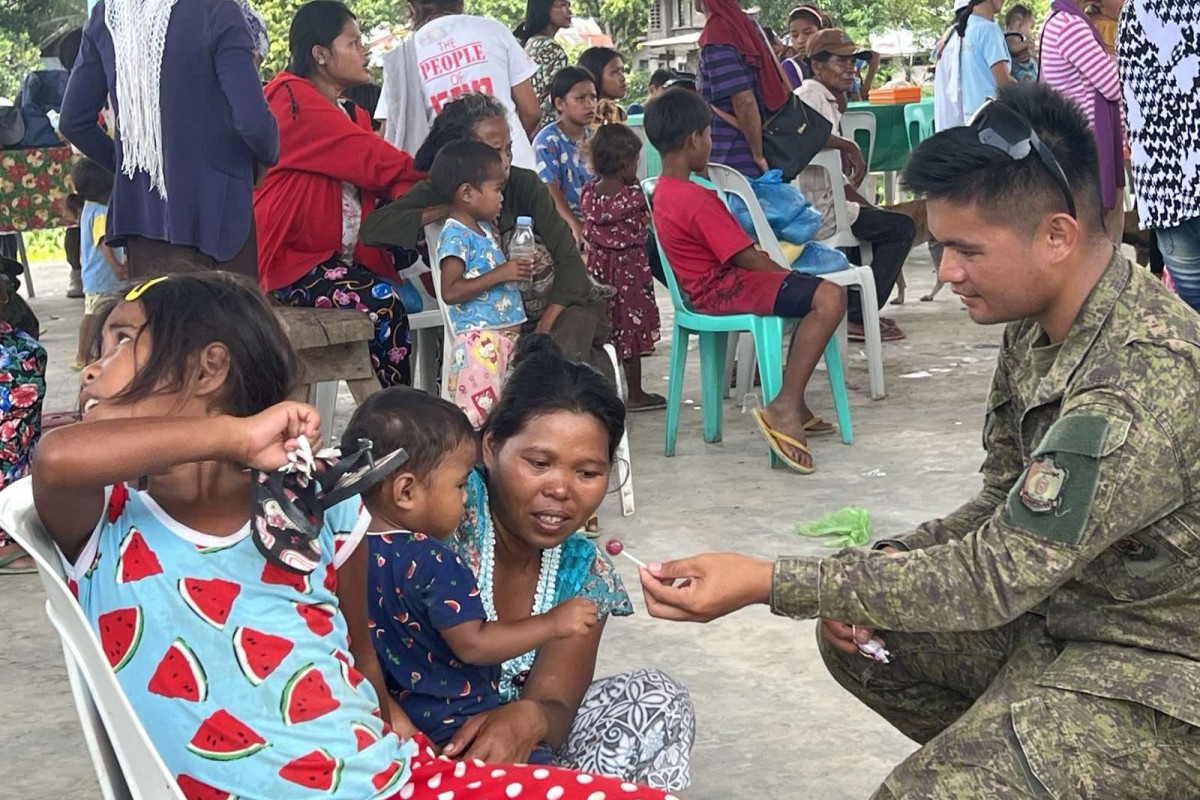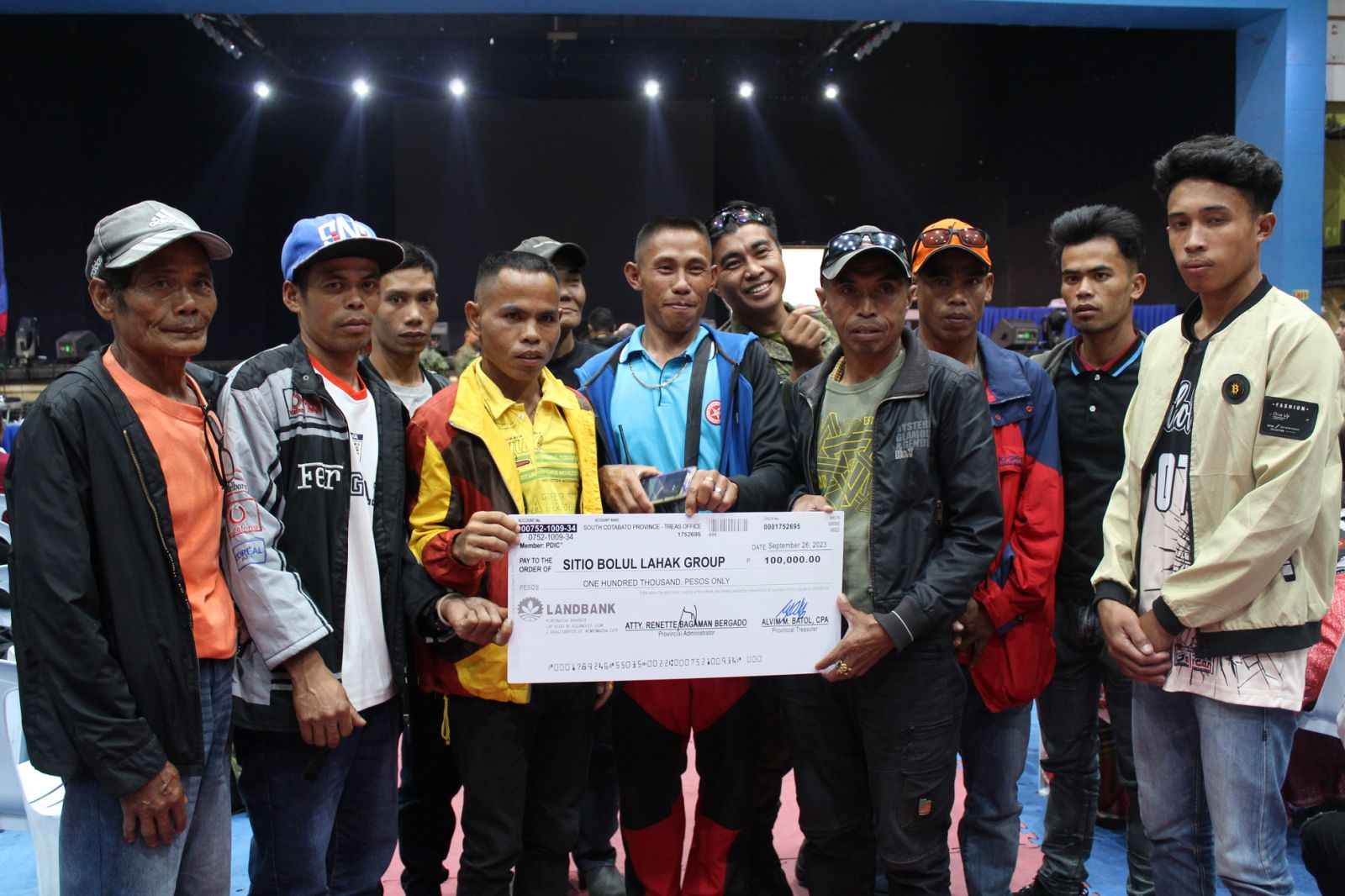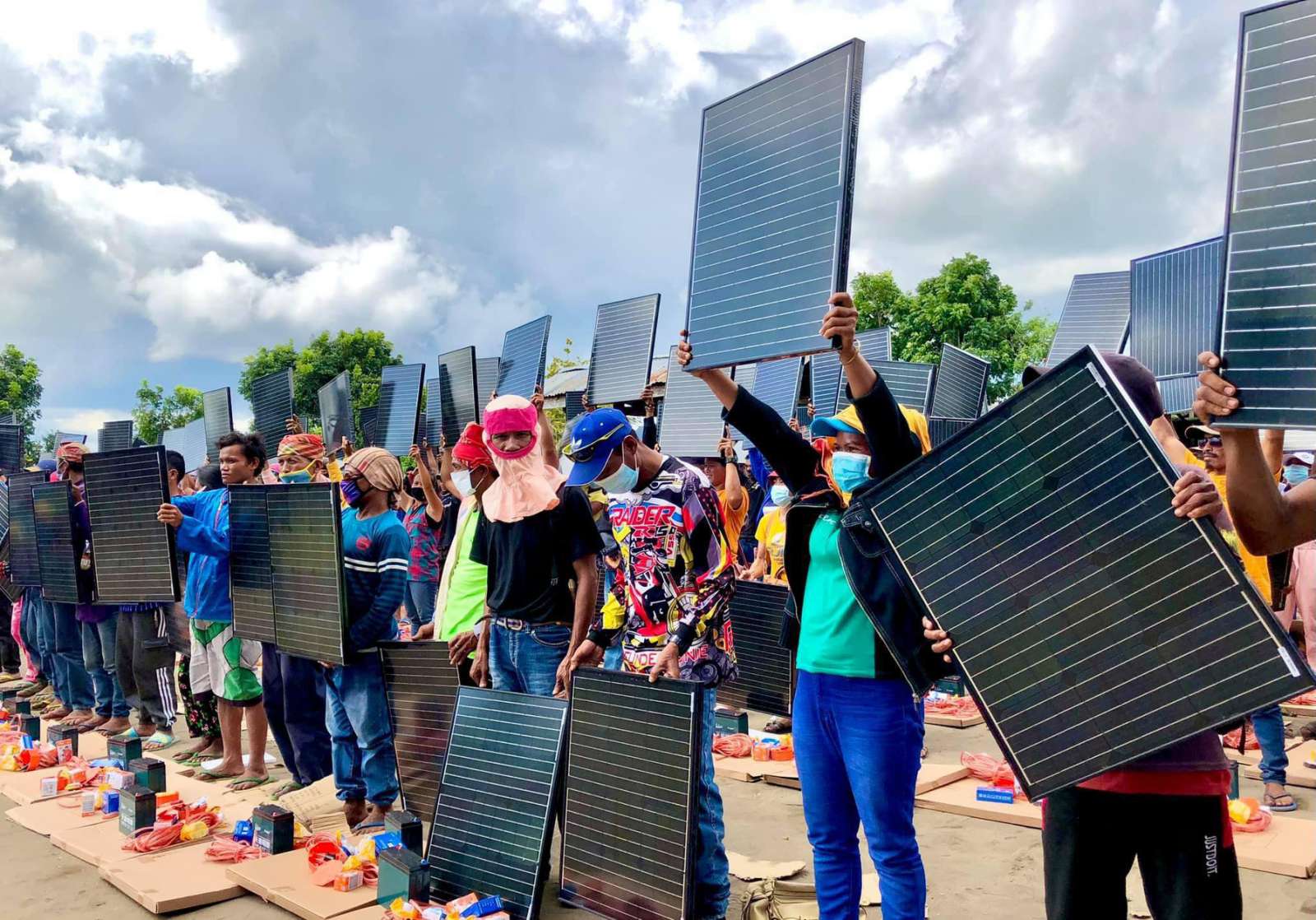
A Serbisyo Caravan may sound trite to others, but for the communities long plagued by insurgency problems, it’s never cliché– it's heaven-sent to meet their family's needs, even for a day or two.
As a response to the call to bring government services closer to the people to effectively combat insurgency, the municipal government of the coastal town of Palimbang recently implemented a series of clustered “Serbisyo Caravans” from September 27 until September 30 across its 11 barangays identified as ELCAC priority communities.
At least 1,992 beneficiaries and their families, including former rebels comprising mostly indigenous peoples from Manobo and Dulangan tribes, residing in barangays Domolol, Mina, Kiponget, Namat Masla, Medol, Batang-Baglas, Bambanen, Tibuhol, Baluan, Napnapon, and Kisek, were recipients of various aid. The assistance included the provision of food packages, distribution of vegetable seeds, and a range of vital services such as complimentary haircuts, circumcisions, anti-rabies vaccinations for animals, feeding programs targeting children, and comprehensive medical checkups, complete with the necessary medications.
The provincial government of Sultan Kudarat is serious about providing for the basic needs of the communities as it continues to fight communist-insurgency problems in the province using the concept of a whole-of-nation approach enshrined in Executive Order No. 70, creating the National Task Force to End Local Communist Armed Conflict (NTF—ELCAC).
For Sultan Kudarat Governor Datu Pax Ali Mangudadatu, taking a necessary measure to the highest level is undoubtedly the best strategy his administration can take to protect its constituents.
Echoing this concern during the recent Provincial Peace and Order Council meeting, the governor emphasized the need to end communist-insurgency problems in the province through consistent collaboration among government players.
“This is an opportunity for me, for our local chief executives, and for partners in other agencies and departments of government to talk about different things for our people, to be able to upgrade our services, and to ensure that we provide our constituents with the best service that they need,” Mangudadatu said.

Governor Mangudadatu also assured that the assistance given to the former rebels should be enough to address their needs as they now become active members of society again.
“There should be a fixed list of the package, like when you market, you surrender, and you will get this specific service from the provincial government,” the young governor said as he tried to calculate if those who surrendered have received enough of the right provisions of government assistance.
The caravan was made possible through the shared efforts of LGU Palimbang, Armed Forces of the Philippines, Philippine National Police, and other national line agencies such as the Department of Social Welfare and Development, Department of Trade and Industry, Department of Agriculture, Department of Health, Local Civil Registry, Department of the Interior and Local Government, and the Technical Education and Skills Development Authority.

The Philippine Army’s 37th Infantry Battalion Commander, Lt. Col. John Paul Baldomar, described the three-day collaboration as the best option to address the issue of insurgency.
“Unlike in the past, when LGU chiefs left addressing insurgency problems solely to the AFP and the PNP, with EO 70, collaboration with various government agencies now becomes the practical solution to the issue,” he said.
Baldomar added that “ before, when we refer to former rebels and insurgency problems, the common notion was that it was the function of the military, but with ELCAC, it emerged as a whole-of-nation approach with clear roles for each government agency.”
He further enunciated that with EO 70, the approach to insurgency problems has become holistic and practical, especially for the soldiers who are most vulnerable as frontlines in combating the communist terrorist group (CTG).
“[But] it now involves different agencies collaborating, cooperating, and coordinating. It’s not the military alone working, but the civilians are also moving,” the official pointed out.
Agreeing with Baldomar’s statement, Palimbang Mayor Joenime Kapina said that indeed fighting insurgency is a team effort that requires “collective action where good governance must be at its forefront, as spelled out in EO 70.”
He believed that both civilians and the military in Sultan Kudarat consider that the best solution to the insurgency problems in the countryside does not end with military efforts alone but by addressing the symptoms that are deeply rooted in poverty, social justice, and inequality.
Mayor Kapina also called on CTG members who are still hiding in the mountains to surrender to the government now, ensuring them the benefits and assistance that await them as they transition to a new life.
Meanwhile, Governor Mangudadatu also expressed his desire to address the long-standing clan war, locally known as "rido,” among his Muslim constituents in the province, describing it as a “second threat to the province's peace and development efforts.”
He, however, considered this a “work in progress,” hoping that along with addressing the insurgency problems in the province, the provincial government will also be able to find a viable solution to put an end to family feuds or clan wars so that the government's development efforts will come to fruition, paving the way for lasting peace in the entire Sultan Kudarat province. (ACA - PIA Sultan Kudarat)






